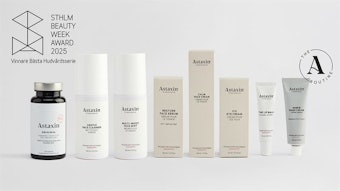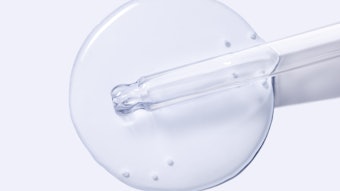The quest for thicker lashes and defined eyes should get safer in Minnesota on January 1, when a state law banning mercury from mascara, eye liners and skin-lightening creams takes effect.
Minnesota apparently is the first state in the nation to ban intentionally added mercury in cosmetics, giving it a tougher standard than the federal government.
Retailers who knowingly sell mercury-containing cosmetics in Minnesota could face fines of as much as $700. Penalties could reach $10,000 for manufacturers who fail to disclose mercury on product labels, according to the Minnesota Pollution Control Agency.
"Mercury does cause neurological damage to people even in tiny quantities," said Senator John Marty, the Democrat from Roseville who sponsored the ban. "Every source of mercury adds to it. We wanted to make sure it wasn't here."
Most makeup manufacturers have phased out the use of mercury, but it's still added legally to some eye products as a preservative and germ-killer, said John Bailey, chief scientist with the Personal Care Products Council in Washington. That group doesn't track mercury in beauty products and favors a national approach to regulating cosmetics, instead of laws that vary from state to state.
Federal law allows eye products to contain up to 65 parts per million of mercury. The exposure a person would get from a product used in small quantities around the eyes would not cause a problem, Bailey said.
"It's added at very low levels, and for good reason," he said.
Not on the label
No other state has specifically gone after mercury in cosmetics, said Stacy Malkan with the Campaign for Safe Cosmetics in Berkeley, California. Connecticut, Rhode Island and Louisiana ban products containing more than low levels of mercury, with some exceptions. New York and Illinois prohibit consumer products with mercury, such as figurines, toys and jewelry.
"Personal care products contain many problematic chemicals," Malkan said. "Many ingredients aren't listed on the labels."
Minnesota's cosmetics provision is part of a larger ban targeting better-known sources of mercury, such as thermostats, barometers, industrial switches and medical devices. The law also covers toiletries, fragrances and over-the-counter drugs such as eye drops, nasal sprays, hemorrhoid treatments and antiseptics.
State pollution regulators said they don't know how many beauty products containing mercury are sold in Minnesota.
The new law is intended as a warning to cosmetics manufacturers not to use mercury, said John Gilkeson with the state Pollution Control Agency's toxics reduction program. Enforcement will happen mainly when consumers complain.
Using eye makeup with mercury is unlikely to cause immediate health problems, but mercury accumulates in the body, so consumers should avoid exposure whenever possible, said Carl Herbrandson, a toxicologist with the state Health Department.
"Mercury is bad, basically in all forms that get into the body," Herbrandson said.
Mercury can retard brain development in children and fetuses, who are most vulnerable to the metal's toxic effects. But it can also cause neurological symptoms in adults.
Mercury fumes can collect inside a jar of skin cream or a tube of mascara, and a person could inhale them when the container is opened, Herbrandson said.
Imported skin-lightening creams and soaps with high levels of mercury have been found in other states; they are illegal under federal law. Herbrandson said skin products with mercury are more dangerous than mercury-containing eye makeup because people apply larger quantities to their bodies.
Associated Press, December 14, 2007










